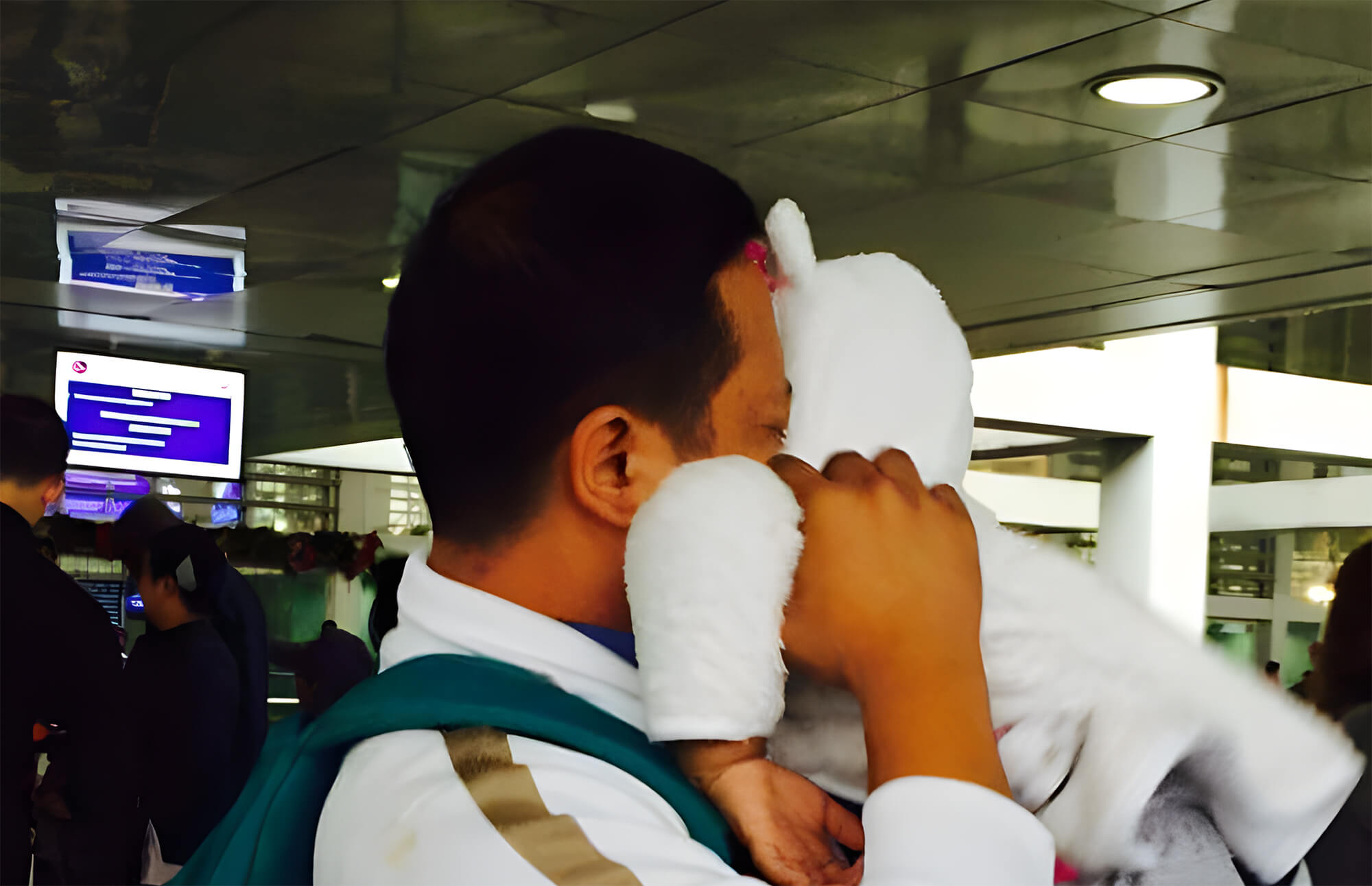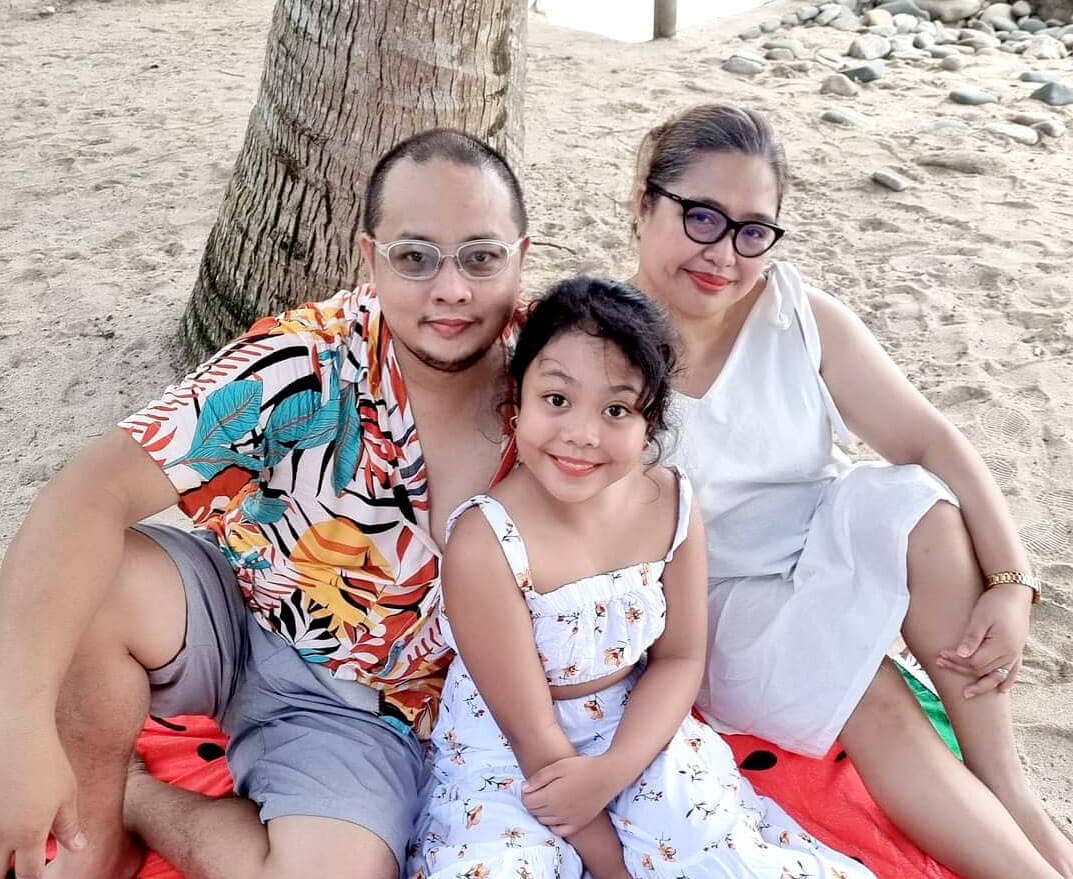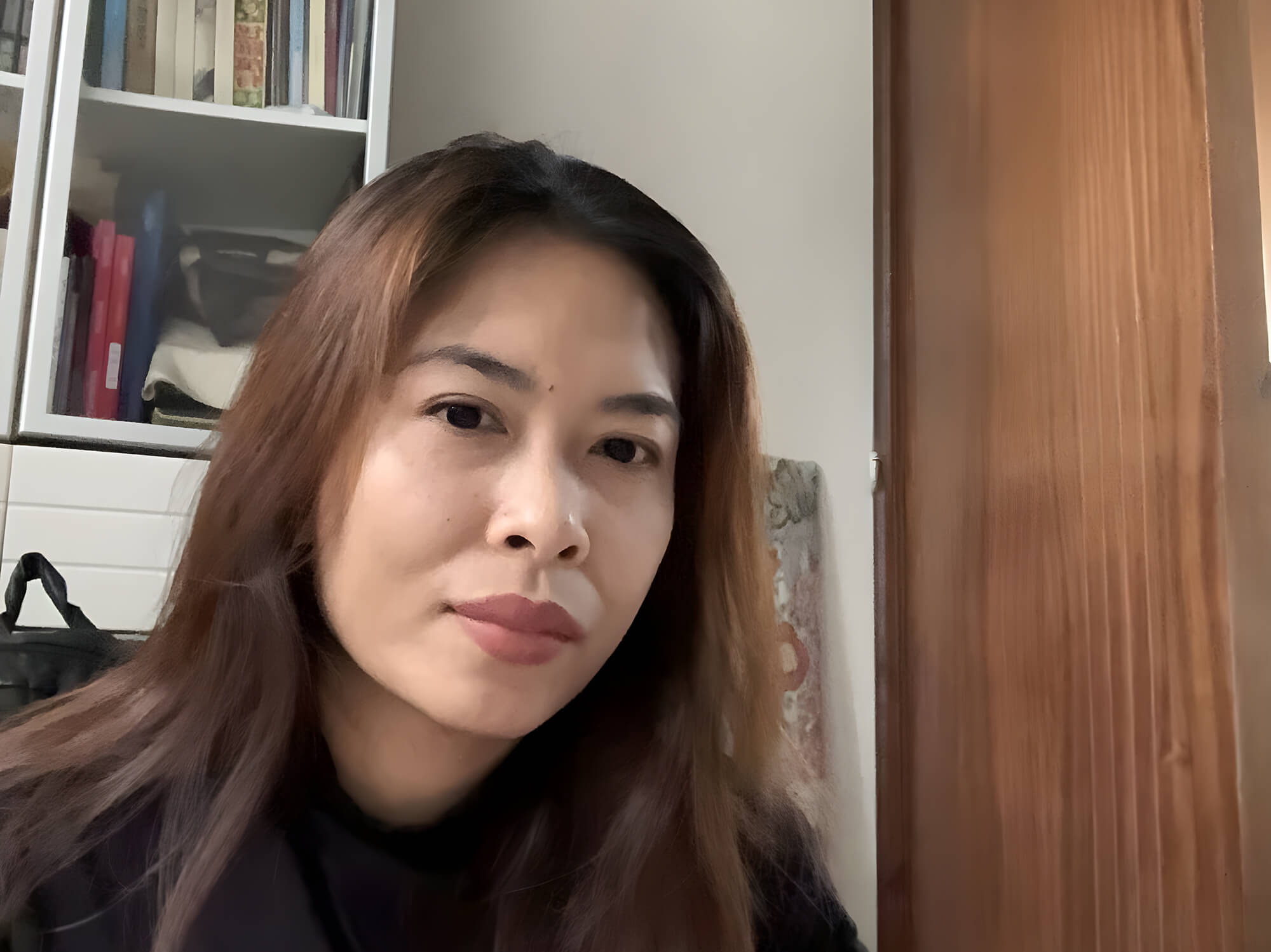




In the Philippines, there are almost 1.8 million registered migrant workers, more commonly called OFWs or Overseas Filipino Workers. The country is one of the world’s largest sources of migrant labour. At its international airports, scenes of tearful goodbyes are often seen—children crying out for their fathers or mothers, parents seeing off their adult children—as loved ones leave for jobs overseas. It may be years until they get reunited. For many, the separation is a difficult choice but a pragmatic one. Two migrant families share their stories with The ASEAN.

Romeo and Mina Consignado
Mina and Romeo Consignado, Jr., have been married for 13 years and have a 10-year-old daughter, Zoie Cassidy Jace. Rome has been working as an aviation logistics technician in Abu Dhabi, UAE for the past eight years.
In 2017, they posted a video of Zoie tearfully saying goodbye to Romeo at the airport. “Zoie’s video sending her Dad to the airport broke millions of hearts online,” shares Mina. “It shows how hurtful it is to be separated from your father. She had lots of questions in her mind but I made sure to answer them all. I explained to her that Dad needs to be away for work for him to provide all our needs, for us to send her to a good school, to have food on our plates, to buy all the things we need, and to prepare for our future.”
“Our main reason for him to work overseas was the good compensation and career growth that the company is offering, aside from the benefits they provide. Before, we were both working in the Philippines, we struggled to provide for our daughter, if we want to give her a comfortable life we must earn more, for us to send her to a good school. He was offered five times his salary here in the Philippines, so he decided to accept the offer, keeping in mind that soon we will be financially stable.
“When he started working abroad there was a lot of change when it comes to our finances, we were able to pay off our debts and somehow have our savings. We were also able to travel and buy things we couldn’t afford before. Of course, we can say that we only spend on things that are important. Even when we are apart, we make sure that the ties and love we have are much stronger. We value every moment that we are together.
“The hardest thing about being apart from him was when anyone of us got sick. Just last 22 May 2023, my husband suffered a heart attack. The feeling of I can’t do anything for my husband in that situation since he is far away and all I can do is just pray. But god is all in control. He saved my husband’s life and now he is still recovering. As much as I wanted to be there and take care of him I can’t go there as easy as 1-2-3.”
Mina had to quit her job and take solo responsibility for their daughter’s care.
“Raising Zoie alone is not easy especially when she starts asking why her Dad is working so far away. Seeing her classmates’ daddies in all their school events and activities saddens her, but I make sure that even if her Dad is away we are here together with her grandparents, uncles, and aunts supporting her, too. Videocalls are very important for us. It is the only way to somewhat ease our longing for each other.”
Romeo used to go home to his family twice or thrice a year, but they have been apart for most of the pandemic. Mina says her husband was fortunate to have kept his job, despite the economic downturn that followed the pandemic. He did get a pay cut as his company had to downsize and cut Romeo’s working hours.
“During the pandemic, those with family members working abroad were less of a priority. We were not included in the financial help from the government. We hope next time we can be considered for assistance too, since all of us were affected. We hope the government can extend help like for hospitalisation and scholarships for the children of the OFWs (Overseas Filipino Workers).
“In my point of view, if our country can give the same opportunities like the one he is having right now, I might as well ask him to stay here. But now the prices of commodities are getting higher together with all the utility bills. The salary they offer to a regular worker here is just not enough to sustain a living. I can say that for migrant workers, separation is an acceptable reality for families now.”

Rodrigo and Ma. Sheena Blanca
For married couple Rodrigo and Ma. Sheena Blanca, working overseas and living separately have always been part of their plan. They dated in high school and after graduation, Rodrigo decided to work as a seaman.
“He went abroad at the age of 19 as part of their on-the-job training programme. We were just boyfriend-girlfriend during that time. He set his mind and heart in this profession as he wanted to have a comfortable life in the future”, shares Sheena.
Sheena became a registered nurse and worked overseas too, until their son Gabriel Zale was born four years ago.
“When we got married, things changed, I got pregnant immediately after our wedding. I had to give up my career and stayed here in the Philippines as my pregnancy journey didn’t go smoothly. His contract changed too, and he later worked 8-10 months, with the rest of the year off.”
Now, in their early 30s, the couple has spent more time apart than together. Rodrigo has moved up to be a marine 2nd engineer for cargo/bulk carriers.
“The hardest part of being apart from my husband is his safety. Whenever he goes onboard, I wonder if he will come back alive. Their work is very risky and sometimes there are incidents while he is onboard, aside from the possibility of pirate attacks.
“My son is very close to my husband. He is the one who suffers a lot whenever his father needs to go aboard a vessel. There are nights when he wakes up crying, looking for his dad. Whenever he sees another man who looks like his dad, he would also run and call him, ‘papa’ ‘papa’. He would sniff and smell his father’s clothes. I just explain to him that papa needs to work away from us, so we can have a comfortable life. That his papa will come back to us after his contract ends.
“The distance just makes us stronger and yearning for each other. I would love to have my husband work here in our country, but working abroad is a situation that we have accepted in our relationship, since 17 years ago. My husband is very dedicated to his profession. He is not just working for the money; he loves his profession.”
Rodrigo was fortunate to keep getting work contracts during the pandemic. It was sometimes a challenge for ship crews to rotate in and out of jobs, but the Blancas were grateful for the support they received from the government.
“Our government assistance on seafarers during the pandemic is excellent for us based on our experience. I would suggest them to offer seminars on financial literacy. This will help us on how to allocate and grow our hard-earned money, so when another pandemic hits us again, we know how to survive independently, and not rely only on our government.”
The views and opinions expressed in the text belong solely to the interviewee and do not reflect the official policy or position of ASEAN.







